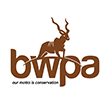Botswana is one of the healthiest countries in sub-Saharan Africa, with good primary health care facilities available throughout the country. However, the following health precautions are advised.
Travel Insurance
It is essential for visitors to remote areas of Botswana to have a comprehensive medical insurance policy, to provide coverage for the treatment of serious illnesses/accidents, and if required, medical evacuation. Personal effects insurance is also advisable.
Check that your insurance policy will be accepted by service providers in Botswana. If receiving medical treatment, ensure that you are treated by licensed medical personnel to enable you to obtain appropriate documentation and receipts for your insurance company.
Reasonably priced medical services are available at government clinics and hospitals throughout the country. Private medical practitioners are available in the cities and major towns, such as Gaborone, Francistown and Maun.
Gaborone Private Hospital is the largest private hospital in Botswana. The hospital requires medical coverage, or cash payment in advance where medical coverage is not available.
Drinking Water
Tap water throughout the country is safe to drink. Bottled mineral water is readily available in most shops and supermarkets, and at camps and lodges. Tourists travelling by road are advised to carry sufficient water at all times.
HIV/AIDS
Visitors are advised to take the necessary precautions against HIV/AIDS and other Sexually Transmitted Diseases.
Malaria
Malaria, including cerebral malaria, is common in northern Botswana, in the Okavango and Chobe areas, particularly during and immediately following the rainy season, from November to April.
As the strains of malaria, and the drugs used to combat them, frequently change, and as certain strains can become drug resistant, it is best to seek medical advice before your departure and take any medication prescribed. Pregnant or very young children are not advised to travel to malarial areas.
Other precautions include the following: wear long sleeves, socks, closed shoes, and generally keep the body covered; sleep with a mosquito net; and use mosquito coils and repellent.
Sun and Heat-Related Problems
Always take preventive measures that include wearing a wide-brimmed sunhat and sunglasses, liberally applying sunscreen every three or four hours, regularly taking rehydration mixes, drinking plenty of water and fruit juices (at least three litres of liquid daily), avoiding prolonged exposure to the sun, and avoiding excessive amounts of alcohol, which can cause dehydration.











